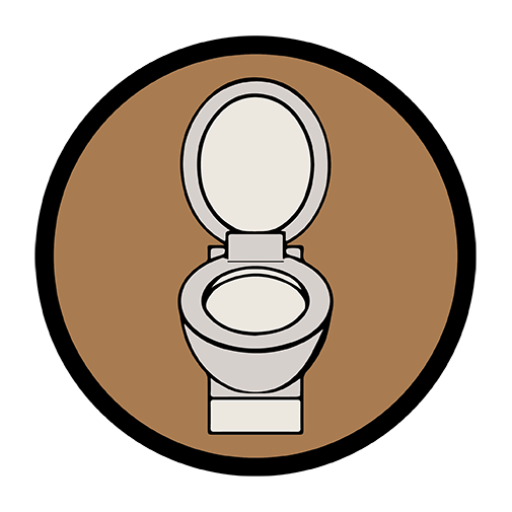How 3 friends built a $110 million business by making toilet talk cool
Sean Riley sits in the corner of the “Dump Room,” the actual name of his company’s conference room on the sixth floor of a modest multi-tenant office building in Chicago’s West Loop. Dressed in a green tie-dye shirt and relaxed jeans, Riley, the 39-year-old cofounder and CEO of Dude Products (or as he calls himself, “Chief Dude Officer”), points out the window to a red brick behemoth across the street.
“You see that building right there, that whole city block. That’s all Kimberly Clark, and that’s just their Chicago office,” he says incredulously. Kimberly Clark owns Cottonelle, one of Dude’s key competitors, and the $20 billion (2023 sales) consumer goods giant set up shop across the street in 2021, just a few months after Dude moved in.
“Where are the binoculars?” quips cofounder Ryan Meegan, Dude’s chief marketing officer, from Riley’s side.
David vs. Goliath
He’s only half joking. Since starting Dude Products in 2011, Riley, Meegan and a third cofounder, Jeff Klimkowski, childhood friends from the Chicago suburbs, have closely studied the trail left behind by “Big Toilet Paper” leaders like Kimberly Clark and Procter & Gamble – everything from the design of their newest rolls to their latest ad campaigns – and have done, well, the exact opposite.
Where Charmin has friendly-looking bears and Angel Soft, a cherubic baby, Dude Wipes has lewd emojis and potty puns. Toilet paper packaging is white; Dude sells its extra-large wipes, in flavors like “Mint Chill” and “Shea Butter Smooth,” in jet black packaging.
“Those guys wouldn’t even use the word butt until like two years ago,” says Riley of his competitors.
This deliberate counterculture approach has fueled their rise in the $11 billion toilet paper industry. Now making up 1% of that market, Dude Products rolled up $110 million in revenue last year, up from $70 million in 2022. The founders predict Dude will reach $500 million in annual sales within five years and ultimately grow into a $1 billion brand.
“That’s all pretty achievable,” says Riley confidently.
Viral marketing on a shoestring budget
They’ve foregone traditional marketing for viral stunts, starting with their 2015 appearance on Season 7 of the hit business show “Shark Tank,” where they won over billionaire Mark Cuban by telling him his “ass hates him” for using dry toilet paper. Cuban cut a $300,000 check for 25% of the business, still the only money they’ve raised to date.
For the Super Bowl, Dude bought multiple giant billboards overlooking the Las Vegas strip, which were populated with potty jokes personalized to singer Taylor Swift (“It’s me. Hi. I’m the solution. It’s me. Not TP.”) and her boyfriend, Travis Kelce, a star of the Super Bowl-winning Kansas City Chiefs (“We love a clean tight end, too.”).
“It was just vintage stunt Dude Wipes, which everyone has come to expect from us,” says Meegan.
Cuban says the appeal is simple: “They created a culture and community around the product that is fun. Someone sh-ts their pants in public and they talk about it.”
Bootstrapping to millions
It’s not just the foul humor that’s paying off. Dude’s founders have been very conservative in how they’ve grown their business. Until 2016, Riley was the only full-time employee; the other cofounders kept their day jobs to fund the business while Riley himself drove Ubers and waited tables for extra cash.
There are now just 21 employees as Dude outsources all its manufacturing to the same Arkansas-based facility used by its competitors. They’ve forgone funding opportunities and scrapped diversification plans — including the launch of Dude-themed body washes and deodorants, which they tried briefly pre-Covid – in favor of organic growth with a single-minded focus on just one thing: wet wipes.
This disciplined approach has led to profitability since 2016. Dude’s products are now available in more than 20,000 stores across the U.S., including the toilet paper aisles of Walmart, Target and Kroger. Coming next: Sam’s Club and Costco, where the wipes are currently being tested online and in Alaska.
“I think we were absolutely insane to go from $0 to $100 million. So now when you’re telling me do I think it’s difficult to go from $100 million to $500 million? No, just given all that we’ve come from,” says Klimkowski. “Really the question mark here is to get from $500 million to $1 billion and that all has to do with moving the needle on household penetration, which again, I feel very confident.”
Born from necessity
The cofounders say they stumbled onto the idea when they moved into their first apartment in Chicago. They graduated from different colleges but stayed in contact and were all working nine-to-five jobs in the city – Riley in sales for a construction tech firm, Klimkowski as an investment banker. (Their fourth cofounder, Brian Wilkin, left in 2018 to pursue other ventures, according to Riley; Wilkin did not respond to an interview request from Forbes.)
That’s when Riley began stocking their communal bathroom with baby wipes. The habit caught on quickly among the roommates and their friends, which is when they realized they might be onto something.
“Toilet paper doesn’t fully get the job done,” argues Meegan, who prior to Dude, worked in sales and marketing for his dad’s business, a manufacturer of the luxury portable restrooms you find at golf tournaments or other high-end events.
After sketching up the prototype (Riley still keeps the original, a white cardboard box with “Dude Wipes” penciled on the side, in his office), they found their manufacturer by researching where other flushable wipes brands made their products. They pooled together $30,000 of their savings and spent $25,000 on buying the wipes, leaving them with $5,000.
“We didn’t have any money really for marketing but we had product,” Riley explains.

